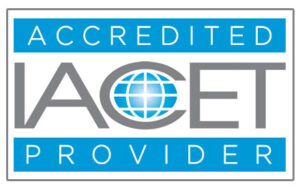40-Hr Site Safety Manager
Description:
The 40-Hour Site Safety Manager course is an intensive training program designed to provide individuals with the knowledge and skills necessary to become competent and effective site safety managers in the construction industry. This course focuses on enhancing participants’ understanding of safety management principles, regulatory compliance, and best practices for maintaining a safe and healthy work environment on construction sites. Developed to meet the requirements of regulatory bodies such as the Occupational Safety and Health Administration (OSHA), this comprehensive course covers a wide range of topics, including hazard identification, risk assessment, accident prevention, emergency preparedness, safety inspections, recordkeeping, and more. Through interactive instruction, case studies, and hands-on exercises, participants learn how to develop and implement effective safety programs, enforce safety policies, conduct thorough site inspections, and effectively communicate safety protocols to workers and management. Successful completion of the 40-Hour Site Safety Manager course equips individuals with the skills and certification necessary to take on the role of a site safety manager and play a crucial role in ensuring the safety and well-being of workers on construction sites.
Duration: 40 Hours
Language: English
Course Code: SAF-102
Learning Objectives:
- Comprehensive Understanding of Safety Regulations: Participants will gain a deep understanding of relevant safety regulations, standards, and codes applicable to construction sites, including those set forth by regulatory bodies such as OSHA.
- Hazard Identification and Risk Assessment: Learners will develop the ability to identify potential safety hazards and assess the associated risks on construction sites, enabling them to proactively implement appropriate control measures.
- Safety Program Development: Participants will learn how to develop and implement effective safety programs tailored to specific construction sites, considering factors such as project scope, workforce size, and site conditions.
- Accident Prevention and Response: The course emphasizes accident prevention strategies and equips participants with the skills to respond appropriately in the event of an accident or emergency, ensuring prompt and effective action.
- Safety Inspections and Audits: Learners will understand how to conduct thorough safety inspections and audits to identify deficiencies, assess compliance, and implement corrective actions to maintain a safe work environment.
- Communication and Training: Participants will learn effective communication techniques to convey safety protocols, conduct safety training sessions, and promote a culture of safety among workers and management.
- Incident Investigation and Reporting: The course covers the fundamentals of incident investigation, including techniques for collecting evidence, determining root causes, and preparing accurate incident reports.
- Regulatory Compliance: Participants will gain knowledge of applicable regulations, standards, and reporting requirements, ensuring compliance and minimizing the risk of penalties or legal liabilities.
- Emergency Preparedness and Response: Learners will understand the importance of emergency preparedness and develop the skills to effectively respond to emergencies, including evacuation procedures, emergency contact protocols, and coordination with emergency services.
- Safety Leadership and Management: The course aims to develop participants’ leadership and management skills to effectively oversee safety programs, enforce safety policies, and foster a culture of safety among workers and stakeholders.
By achieving these learning objectives, participants will be equipped with the knowledge and skills necessary to assume the role of a site safety manager and effectively ensure the safety and well-being of workers on construction sites.
Curriculum:
- Introduction to Construction Site Safety Management: Overview of the role and responsibilities of a site safety manager, as well as an introduction to relevant laws, regulations, and industry standards.
- Construction Safety Regulations: In-depth coverage of safety regulations and codes, including those set forth by OSHA, local authorities, and industry-specific guidelines.
- Hazard Identification and Risk Assessment: Techniques for identifying potential hazards on construction sites, conducting risk assessments, and implementing appropriate control measures.
- Accident Prevention and Safety Programs: Strategies for accident prevention, development and implementation of safety programs, and integration of safety into construction site operations.
- Safety Inspections and Audits: Conduct comprehensive safety inspections, audits, and walkthroughs to identify safety deficiencies, assess compliance, and develop corrective action plans.
- Safety Training and Communication: Effective communication techniques for conveying safety information, conducting safety meetings and toolbox talks, and providing training to workers and management.
- Incident Investigation and Reporting: Principles and practices of incident investigation, gathering evidence, determining root causes, and preparing accurate incident reports.
- Emergency Preparedness and Response: Developing emergency action plans, coordinating with emergency services, conducting drills, and ensuring proper response to emergencies and accidents.
- Safety Leadership and Management: Strategies for effective safety leadership, creating a positive safety culture, managing subcontractors, and fostering worker participation in safety initiatives.
- Regulatory Compliance and Recordkeeping: Ensuring compliance with safety regulations, maintaining accurate records, and understanding reporting requirements.
- Special Hazards and Construction Activities: Addressing specific hazards and safety considerations for activities such as excavation, scaffolding, electrical work, fall protection, hazardous materials, and more.
- Safety Program Evaluation and Continuous Improvement: Methods for evaluating safety programs, measuring performance, and implementing continuous improvement strategies.
Requirements
- There are no prerequisites needed to attend this course.
- As per the NYC Construction Codes – Title 28 General Administrative Provisions, to obtain a Site Safety Manager or Site Safety Coordinator Certificate applicants must complete & submit to the Licensing Unit a certificate of completion for 40 hours of training. In addition, as per Title 1 Rules of the City of New York 3301-02, to register as a Construction Superintendent, applicants must complete & submit to the Licensing Unit a certificate of completion for 40 hours of training.
Features
- CEUs: 4
- CEU Requirements: 100% attendance for the course.
- Completion of IACET Registration Form
- Active participation in all class exercises
- As applicable, achievement of minimum passing score on required end-of-course examination
- Participation and submittal of end-of-course evaluation form
Target audiences
- Construction Site Safety Managers: Individuals who are currently working as site safety managers or aspire to take on the role to ensure the safety and health of workers on construction sites.
- Construction Project Managers: Project managers who have safety management responsibilities as part of their role or who oversee site safety managers and want to enhance their understanding of construction safety.
- Safety Coordinators and Supervisors: Individuals responsible for coordinating and implementing safety programs on construction sites or overseeing the work of site safety managers.
- Construction Company Owners and Executives: Owners, executives, or managers of construction companies who want to develop a comprehensive understanding of construction site safety to ensure compliance and effective safety management within their organization
- Safety Professionals and Consultants: Safety professionals and consultants specializing in the construction industry who want to enhance their expertise and knowledge in site safety management.

